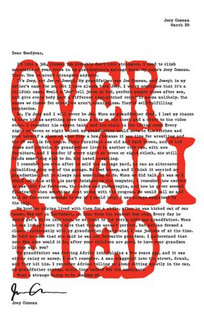To top off the year, we posted our exclusive 12 Career Tips for 12 list, highlights from StartWire interviews with recruiters and talent acquisition pros.
You can find the advice here. But we also know it’s one thing to read advice – and it’s another thing to actually put it into action. (Classic example: Spending more time reading about how to lose weight than exercising.) Maybe you know what we mean here…
So here are our tips – paired with action strategies designed to help you to jump start your search.
Get social. Engaging with recruiters online can help you get hired.
Get online. If you engage with organizations today on social media, you will get a little bit of a bump. You will receive extra attention. All of those avenues of social media engagement can help. This is a new world for employers so we are being extraordinarily careful to engage a little bit better, and to give more feedback.
Stacy Van Meter
Senior Manager of Social Marketing/Employment Brand for Deluxe.
How to do it: Two strategies that will take you under ten minutes:
-
Like the organization you want to work for on Facebook. (Make sure you have a professional profile.) Post a comment about company news or share a related item on the organization’s Facebook wall. If you see a great job, share it — as one recruiter recently told me, “when you share a job that’s different from the one you’re applying to — and tell us what you’ve applied to — you are helping us with our work before you even get started!”
-
Follow the company on Twitter and send an @reply message via Twitter expressing interest in learning more about jobs. Be specific — if you’ve already applied for a job — say where you’ve applied. (New to Twitter? An @reply is like a postcard — anyone can see it, and a quick message can be an easy way to open doors with potential networking conversations.)
Find a way to get introduced to someone inside the company.
Over 30% of our hires come from referrals. The biggest advantage you can have is when people know you. Get someone inside the company to advocate for you. Find the job, than find someone who can vouch for you, and apply for it. By the time the job is posted, it is almost too late. Hiring success often comes from someone you know.
Adam Eisenstein
Recruiter for McGraw Hill
How to do it: Connect your LinkedIn or Facebook account on StartWire and see who you know at any job listed on the site or for companies that you’ve already applied to. StartWire’s “Get Referral” and recommendations features provide a quick way that you can get in touch.
Get a referral.
On average, one of out every 33 candidates is going to get hired from an online source—such as a job board or a career site. If you are referred, your odds go up to one in four. Those are better odds.
Shanil Kaderali
Manager of Talent Programs at WellPoint
How to do it: Apply to places where you can get a referral as much as other jobs.
Be accessible. Tell people how they can find you.
Don’t forget to share your contact information. Put your phone number and email in every single communication that you send to a recruiter. If you save time so I don’t have to look for your information, it makes it much easier for me to give you a call back.
Rebecca Warren
Recruiting Manager at General Mills
How to do it: Include your email and phone number in a signature line of your email and always give the position number when you follow-up so employers can easily find your information. Another quick path to success? Name your resume with your first and last name — and include the job you’re applying to. When you can be a fast find on the computer, it’s easier to stay top-of-mind.
Wear your enthusiasm on your sleeve.
Editor’s Note: This is something we heard over and over — from virtually every company we have talked to. It’s important to share you care about what the company does and the type of work you want to do.
If you want to win the job, you need to portray that you are passionate. Then the natural or optimistic assumption is “this person is going to work extremely hard.” Show that there are things you work really hard at – and I would do this at your company.
Alex Moazed
CEO at Applico LLC
How to do it: Research the company where you’ve applied and show that you are familiar with the culture. Want an easy back door entrance? Track your application in StartWire and click on the “details” view of any job for instant access to employee reviews from Glassdoor.com
Don’t take yourself out of the running for a job by not applying. Let them decide if you’re qualified.
People assume that they aren’t going to get into Google. The reputation is such that it is very hard to get into Google. And so some people don’t even try.
I didn’t go to a great school. I didn’t have an amazing GPA. But I work at Google. So could you.
Don’t take yourself out of the game by making assumptions and choosing not to apply. I’ve hired people who don’t have college degrees.
Jeff Moore
Lead Engineering Recruiter for Google
How to do it: Apply for any job that you meet 70% of the applications for…and apply early. StartWire research shows that 50% of successful job seekers apply for a job within one week of the job listing.
Get to know the whole company – not just the job you’re applying for.
I always say a career is like a puzzle; you have to look at the whole picture. Whether you are looking to go into finance, marketing, product design or sales, be open minded and take into account the whole experience – think about what it is you can take away from a particular role. Understand the many pieces of the company and be willing to learn about new things that might be the right fit for you. You’re not going to know enough unless you are open and aggressive learner.
Nancy Hickey
Senior Vice President, Chief Administrative Officer for Steelcase Inc.
How to do it: When you get invited to a group interview, ask the participants how they work together and interact on a daily basis. One of my favorite questions: If I was hired for this job, what would my first priority be — and how would I work with each of you to get that done?
Don’t give up if the phone doesn’t ring.
When a job seeker applies for any job they should remember that being qualified doesn’t necessarily mean the same thing as being the most qualified. So the assumption by a job seeker that they are entitled to an interview just because they meet the qualifications is a tough thing to swallow at any level.
The fact is that even if recruiters wanted to interview all 1,000 qualified job seekers that apply to their job, they can’t always do so. And even if they did, they’re only able to hire one of these people.
It’s why connecting outside of the application process is so important for both job seekers and recruiters. It’s why having a visible and living profile that showcases your expertise and engagement with industry peers is much more powerful than is sometimes thought.
Chris Hoyt
Talent Engagement & Marketing Leader at PepsiCo
How to do it: Try this experiment. Follow-up on all of your applications with a referral — or direct outreach to the company via a social network. Chances are good you’ll get a higher follow up rate.
If at first you don’t get hired, try, try again.
Understand that whenever you are applying to an organization that is highly desirable, people tend to get discouraged if they don’t get the first job they go for. We may get 400 or 500 applicants for one job. There could be 10 top people in the field. If you are passionate about the organization continue to look at the organization.
The first time I applied for a recruiter job with Taylor Made – I came in third. Then four years later, I’m leading global recruiting.
Michael Jordan got cut from his high school varsity team and ended up becoming one of the best players of all time. You shouldn’t discourage easily. I find that the lessons I learned on the playing field have guided me to this point in his career: Hard work pays off, you accomplishes far more working with teammates, and a good coach is critical to deliver successful end results!
Steve Bonomo
Head of Global Talent Acquisition for Adidas
How to do it: Don’t give up on a company because you didn’t get hired the first time out. Don’t be afraid to apply for another position, apply for other jobs of interest as well.
Be humble.
Occasionally, people aren’t humble enough. People say “I meet all the criteria for the job.” A lot of candidates have come in from our process and people have walked away saying “That’s the smartest person we’ve interviewed for this job but they come out of the interview saying ‘let’s not hire them.’ We like to see people who feel like they have something to learn from us, too. I’m not going to ask you to rewire yourself. You want people who can sell themselves, but people who can be themselves, too.
Miles Parroco
Director of Recruiting, Eventbrite
How to do it: Again, It’s important to show what you want to learn from a job just as much as you share your accomplishments. Show you are human…and why people should want to work with you, too.
Demonstrate you’re a team player with “humble confidence.”
We look for individuals who have a collaborative style and what we call a “humble confidence.” Can you listen to and build on the ideas of others yet respectfully advocate for your own ideas, too?
Julie Motta
Senior Manager of Talent Acquisition for Whirlpool Corporation
How to do it: When you talk about details, be concrete and avoid adjectives: “The event I organized was attended by 500, an increase of 200 over the year before” says more than “I did way better than last year’s organizer in getting people to come to the event.”
Don’t be afraid to say what you don’t know — and what you hope to learn from a new job. Remember, most employers value employees who can follow instructions as much as they do leadership.
Ask for the job.
Research each company you want to work for. If you are socially connected (personally or professionally via social media) with someone from the company, if appropriate, query those associates about the culture. Ask related questions about the job and the company.
Interviewing is getting to know one another. During the interview process, instead of answering questions with one word, tell a story about how you positively responded to a situation. Before you leave the interview, ask what the next steps are in the process. In the best-case scenario: Ask for the job.
Wanda Callahan,
Director of Recruiting, Harris Interactive
How to do it: Don’t be afraid to show your sincere interest in an opportunity, and ask how you can follow-up. If you don’t hear back, pick up the phone and follow-up. Once hired, how you follow-up on activities for the job will be important — so why not demonstrate that you have these qualities in advance!
 back?
back?








